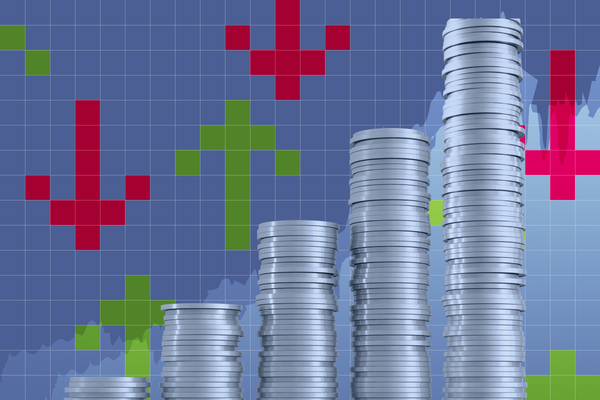
TD Global Equity Focused has achieved impressive, market-beating appreciation while offering a smooth ride, a winning combination in the world of fund investing.
The $1.1 billion fund, which will celebrate its fifth birthday in September, shows top quartile performance for the one-year and three-year periods ended July 12, with a one-year gain for Series F of 21% and a three-year average gain of 10%. The five-star fund is rated bronze by Morningstar.
Free Cash Flow is King When Picking Stocks
Damian Fernandes, managing director at Toronto-based TD Asset Management Inc., cites two key prongs of the fund’s success:
- A focus on companies that can aggressively grow free cash flow, and
- Overall portfolio diversification based on the impact of big picture themes.
Fernandes says the team, which also includes Benjamin Gossack, TDAM managing director, David Sykes, chief investment officer, and David Mau, vice president and director, is “religious” about free cash flow growth when picking companies. Free cash flow refers to cash left over after various expenses such as taxes, operating expenses and capital expenditures.
“We are dogmatic in seeking companies with free cash flow growing faster than the market,” Fernandes says.
The Fund is a Theme Park, Made Up of a Collection of Companies
Among the major investment themes that weave through the fund are the transformational aspects of artificial intelligence (AI), consumer appetite for luxury goods, developments in health care and the rise of clean energy. The fund recently held 51 companies, a relatively concentrated portfolio.
“We view the fund like a theme park,” says Fernandes. “It’s a collection of companies influenced by different economic themes. We spend a lot of time thinking about real diversification.”
For example, the fund could own a European luxury goods company and a Chinese insurance company, which are in completely different businesses and locations. But they are both tied to the theme of rising prosperity in Asia and would be impacted in a similar fashion by an economic slowdown in the region.
“We diversify by where cash flow is coming from,” says Fernandes. “We don’t necessarily focus on low volatility stocks, but this strategy reduces the volatility of the portfolio.”
How to Find ‘Best in Class’ Ideas?
Once influential themes have been identified, the team identifies industries with the greatest growth potential, and then seeks leading companies or “best of class” in these industries.
Geographic and sector weights tend to be a fallout of stock-picking decisions, rather than a top-down allocation strategy. The fund recently had about 59% of its assets in the U.S., 36% in Europe, 3.4% in Asia, 2.1% in Hong Kong and a slight representation in Canada.
In terms of stock sectors, technology is the largest sector in the fund at 24% recently, followed by health care at 16%, industrial goods at 13% and financial services at 12%. The team does keep an eye on weights to prevent any one sector from being overly dominant. Typically, a big sector like tech could account for 10% to 25% of fund assets, and wouldn’t exceed 35%, Fernandes says.
Despite a Run-Up in Stocks, the Artificial Intelligence Theme has Legs
The largest holding in the fund is Microsoft Corp MSFT, a key beneficiary of technology trends. The fund also holds Alphabet GOOG, the parent of Google, and software giant Adobe ADBE, a new position added earlier this year. All three are expected to benefit from the rise of artificial intelligence.
While these companies are among the handful of red-hot tech giants that have dominated U.S. the stock market this year, Fernandes says high valuations are not necessarily a reason to sell and take profits, as long as there is potential for growth in earnings and free cash.
“Right now, the AI theme is getting a lot of hype, and it will be transformational,” says Fernandes. “There will be winners and losers, it’s like the early stages of the Internet.”
China Luxury Consumption is a Theme to Watch
The resilience of luxury goods is also a key theme, as affluent consumers in Europe and North America continue to spend vigorously even though people at the lower end may be struggling. In addition, the rising middle class in Asia creates a significant new market.
“The Chinese consumer is just coming out of 2 1/2 years of lockdown as Covid restrictions are lifted,” says Fernandes. “There’s a lot of ‘revenge spending’ happening with reopening excitement. Many consumers are price agnostic when it comes to luxury goods.”
The luxury trend has led to fund investments in such companies as Louis Vuitton MC and Hermes International SA RMS, both of France, as well as Porsche AG P911, a German car manufacturer now setting up production plants outside of Europe in such areas as Malaysia.
Healthcare as a Theme is Evergreen
In health care, two key holdings are drug makers Norwegian firm Novo Nordisk AS NVO and U.S.-based Eli Lilly LLY Both firms are leaders in developing drugs to manage diabetes, which a growing disease as a result of such trends as the deteriorating quality of diets and aging populations.
A couple of other health care holdings include U.S.-based Thermo Fisher Scientific TMO and West Pharmaceutical Services WST, both tied to the growth of new biological drugs that use living organisms, plant or animal cells to fight disease and infections. Bio drugs require a different delivery system than a hard dry pill that is chemically derived. Because these drugs are ‘live,’ they are often suspended in a liquid, and can be packaged in vials, pipettes or tubes.
“We may not know what the next cutting-edge drugs will be, but these two companies design and manufacture the latest drug delivery systems, and will win regardless,” says Fernandes.
Energy Grid Expansion is Essential
Similar thinking has led to a holding in France-based multinational energy management firm Schneider Electric SU, which assists utility companies in expanding their capacity. Energy grid expansion will be essential as the use of electric vehicles increases, Fernandes says, and Schneider will benefit no matter which car manufacturer dominates.
“We don’t know which auto manufacturer will be dominant in electric vehicles, and why make the bet?” Fernandes says. “Schneider doesn’t face the same competitive pressures as carmakers, and will win no matter who makes the cars.”





:quality(80)/cloudfront-us-east-1.images.arcpublishing.com/morningstar/6NH3ZEROABEKJKFALI3GX2YN4U.jpg)

















